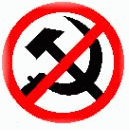For CPM, mum’s the word on N Korea
For CPM, mum’s the word on N Korea
Ananda Majumdar
Posted online: Wednesday, October 11, 2006 at 0000 hrs IST
NEW DELHI, OCTOBER 10
Despite its strong anti-proliferation stance and ideological opposition to armament of any form, the CPI(M) politburo is yet to formally put out its reaction to North Korea’s first nuclear test on Monday. This was the same party that spoke out against India’s own government after Pokhran-II in 1998.
Again, the August 1999 draft report of the National Security Advisory Board on Indian Nuclear Doctrine saw CPI(M) leaders meet then prime minister Atal Behari Vajpayee and later say they were opposed to nuclear weaponisation and deployment. The CPI(M) believed it had reason to be upset with the draft report for it said that in the absence of global nuclear disarmament India’s strategic interests required effective, credible nuclear deterrence and adequate retaliatory capability should deterrence fail.
Could fraternal relations have come in the way of its ideological stance to give a thumbs down to the nuclear test by the Democratic Peoples Republic of Korea? Time and again, and every time foreign affairs and US hegemony has figured in CPI(M) meetings, so has DPRK. In fact, North Korea is presented as either standing tall to the US and a victim of the US’s machinations, its heroism always juxtaposed against the CPIM)’s hatred of the US. The DPRK, the CPI(M) believes, is a victim because it does not fall in line with America’s “hegemonic plans”.
For instance, at the CPI(M)’s last party congress in April 2005, when Prakash Karat became general secretary, the political resolution said its fears of the US using 9/11 to “expand the imperialist offensive” had come true. After Iraq, the US was targeting two other countries in President George Bush’s ‘axis of evil’ — North Korea and Iran.
The CPIM)’s lack of response could be explained from the same political resolution that said, “While reserving the right to produce new weapons and expanding the use of nuclear weapons, the US embarked on a counter-proliferation campaign targeting countries such as Iran, North Korea and Brazil to prevent them from developing nuclear technology. In contrast, Israel, under the special protection of the US, is allowed to keep nuclear weapons.”
In March this year, the International Department of the CPI(M) Central Committee stood shoulder to shoulder with its fraternal party to condemn plans for holding an ‘international rally’ in Brussels that was to highlight human rights violations in North Korea. The CPI(M) saw this differently, saying it was a “smear campaign aimed at tarnishing the image of DPRK”.
Such common purpose with North Korea has often been on view, despite Kim Il Jong’s questionable reputation on the human rights front and the widely held view that he heads a regime that can scarcely be trusted to be responsible with weapons of mass destruction.
Back in September 2003, the CPI(M) central committee prepared a report on “current developments it chronicled how the US had been forced into negotiations with DPRK when the latter refused to halt the re-commissioning of a nuclear power plant. Sanctions, the CPI(M) said, could not be imposed because of opposition from China. “The United States insisted on North Korea unilaterally dismantling its nuclear programme before any economic or political issues from North Korea could be discussed. This was rejected by the DPRK,” the CPI(M) document said.
The CPI(M) is more than quick in reacting to important developments. But, for the last two days there was no official word from the party on North Korea’s nuclear test. The only notice put up was for a blood donation camp on Saturday in view of the large number of dengue cases in the Capital.
Tags:
Source: Indian Express


0 Comments:
Post a Comment
<< Home